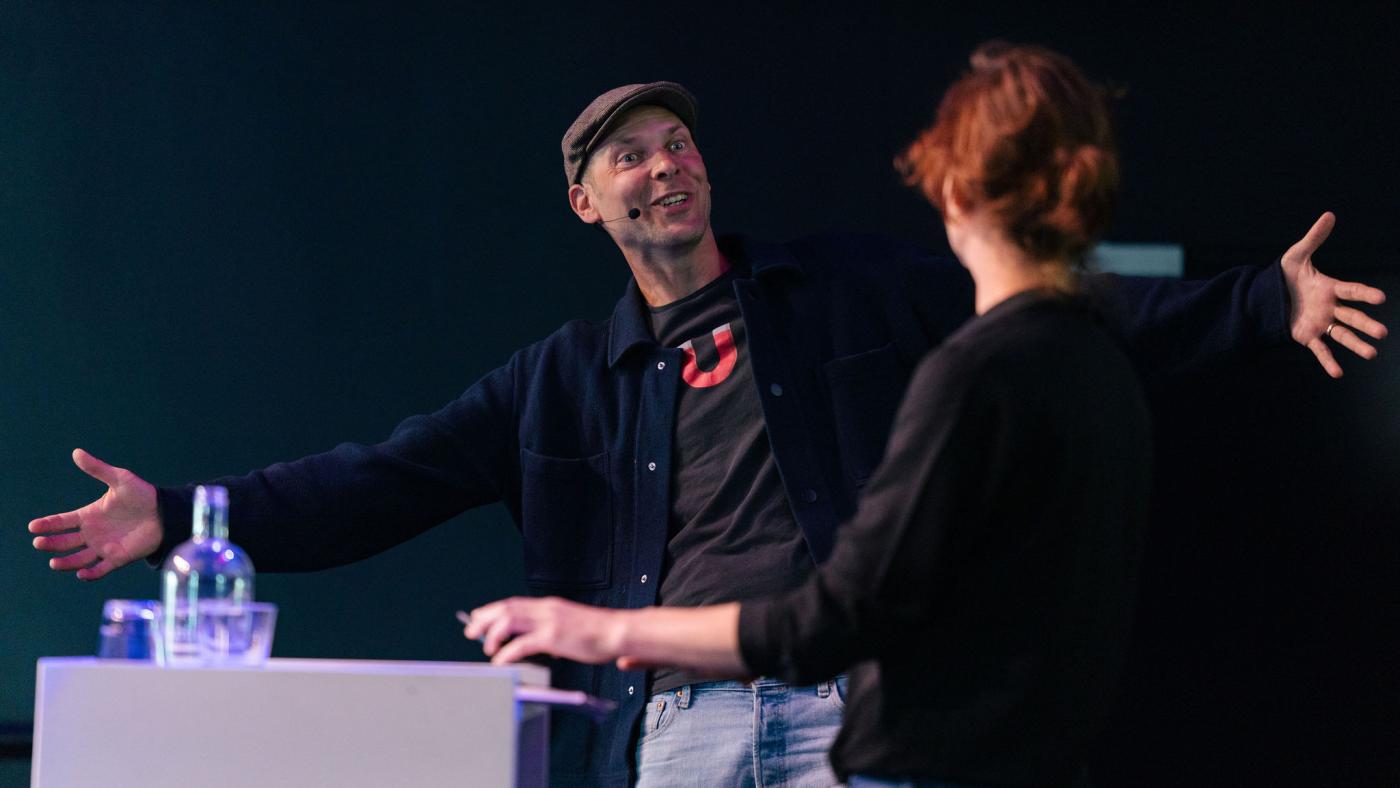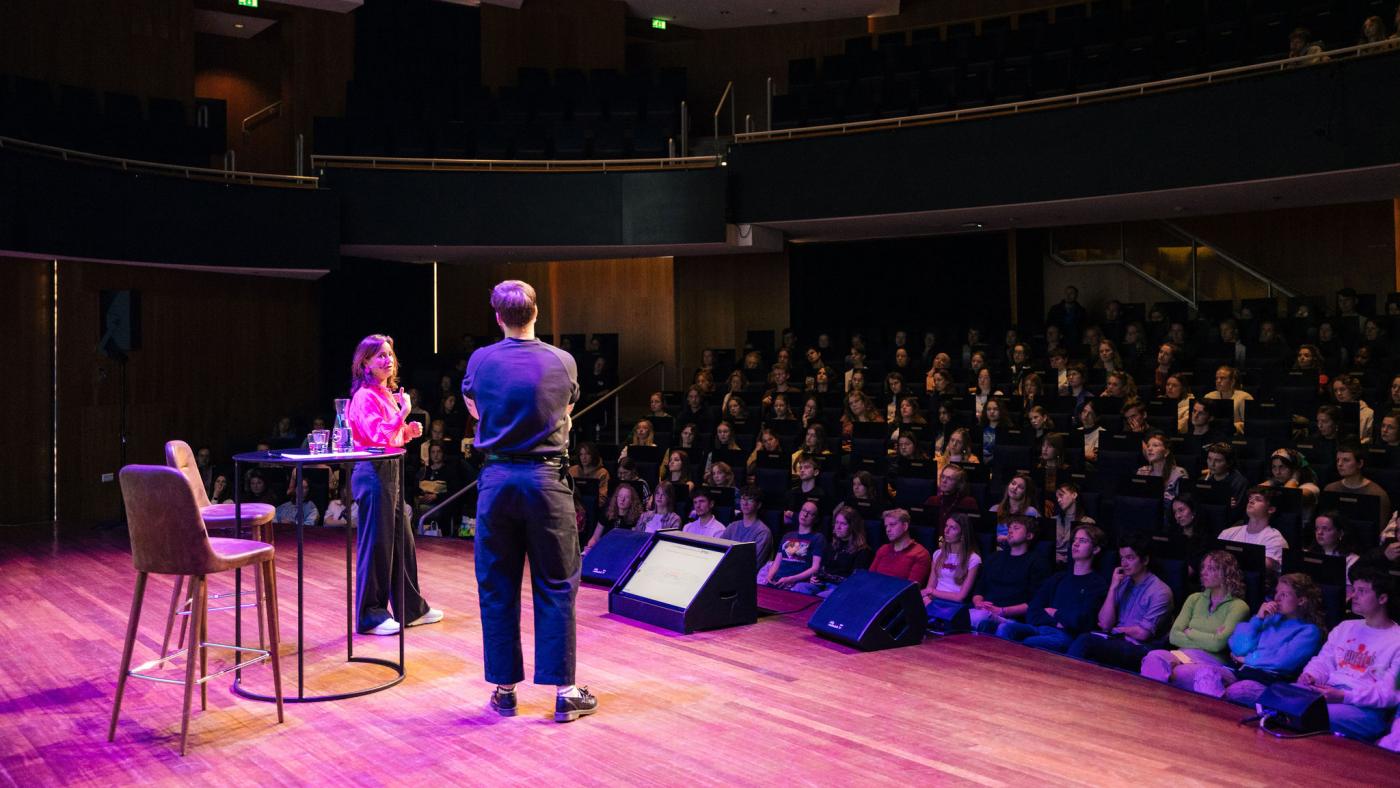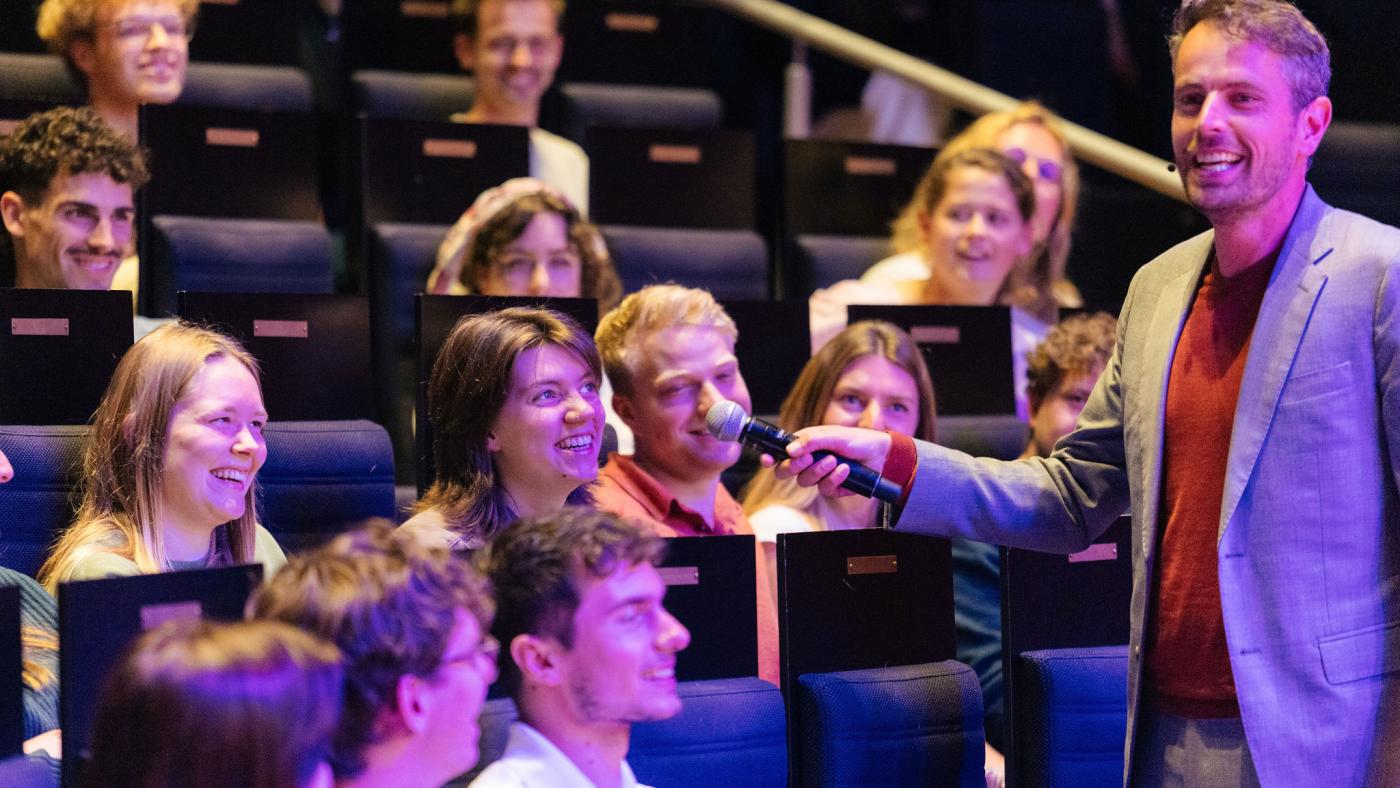First Safe & Sound Festival at Utrecht University
Can you consent after drinking alcohol?

‘Have you ever crossed someone's boundaries?’ That was a recurrent question in the several workshops that happened on the top floor of TivoliVredenburg during the Safe & Sound festival. Surprisingly, many students answered with an honest ‘yes.’ For example, many have admitted to encouraging friends to drink alcohol even though they had said they didn't want to.
In the workshop Alcohol, Drugs & Boundaries, organised by Poppi Drugsmuseum, students could talk about their own alcohol and drug use in small rooms. A dice with a built-in microphone was thrown around the audience, who reacted to statements about drug use. The game made for a lot of laughter. One of the statements students had to react to was 'It is possible to use drugs sensibly.' One student argued: ‘Once you know yourself, you know your limits, don't you?’ But another student disagreed: ‘Every time you use drugs, those limits change. The context, your mood, your surroundings. You can't predict it.’
The staff of the Poppi Drug Museum selected a few people from the audience to participate in short sketches about peer pressure. They imagined a beer tap, and the facilitator played the role of a manager trying to get his employee to drink with him while working. After the sketch, the microphone was thrown around the room again, and the audience was asked if they had ever seen a similar scene in real life. ‘When I go out with my colleagues after work and I decide in advance not to drink, it's hard to stick to my decision. If the manager buys a round, I don't want to look silly.’

This workshop was all about listening, sharing experiences, and exchanging tips, like how to say “no” to drugs. One girl said that standing her ground came easily to her because she simply says “no” in a firm voice. For many students, however, that is easier said than done, so the group started giving tips for those who have a hard time saying no. For example, they can let friends know in advance that they don't want to drink or say that they have to drive.
Another valuable tip was to always buy soft drinks for the entire group and only pour alcohol into someone's glass if they specifically ask for it. An older participant put it nicely: “When I was a student, ‘drinking’ didn't automatically mean drinking alcohol. Now it does, which makes it much harder to turn down a beer.”
Tim Hofman and Iva Bicanic debate sexual safety
Tim Hofman's workshop was, by far, the most popular one. Several workshops were only half full, but the Dutch TV show host was met with a packed Hertz room. Hofman spoke with Iva Bicanic, Director of the Centre for Sexual Violence, a clinical psychologist who has been committed to combating sexual violence for many years. The theme of Hofman and Bicanic's talk was “Sexual safety: what can you do?”. The idea was to give students tools to create a safer sexual environment.
The session began with a strong focus on statistics. When asked how many people had experienced inappropriate behaviours themselves, more than half of the room raised their hands. According to Bicanic, this corresponds with scientific research, which shows that around 62 per cent of people in our society have experienced some form of inappropriate behaviour.

Bicanic and Hofman then went in search of possible causes. The researcher and the TV show host disagreed with each other while talking about alcohol consumption. While she believes that consent cannot be given once alcohol is involved, he thinks that it can. The debate that ensued was done in terms of yes or no, which left little room for nuance and a proper discussion about grey areas. How does one know whether they are still able to consent to sexual advances? After how many drinks should they consider that consent is no longer possible? If someone is just tipsy and says they consent, is that already a bridge too far?
The conversation became interesting once those grey areas were addressed. It all started with a question to the audience: “Have you ever crossed someone's boundaries?”. Once again, the issue of alcohol came up. A young woman said she didn't know whether she had treated a drunk bed partner well. Then a young man mentioned that he and his partners had a traffic light system. If someone wants to stop, the traffic light turns red. However, he wondered if he had ever made anyone feel unsafe before adopting that system and, if so, whether the other person dared to say “no”.
Bicanic insisted that honesty is essential to truly address sexual safety, stressing the importance of having the courage to admit when we are in the wrong. She told the story of a man who asked what he should do after several women told him that his housemate had made them feel uncomfortable. ‘Don't send him away,’ Bicanic replied. ‘As soon as you do that, he will be excluded, and it could happen again. Instead, create a safe environment and talk to him.’
Many students went to the festival to see Hofman and Bicanic, but some were let down: ‘They emphasised statistics way too much. They didn't have enough time to go deeper into the topics or be truly interactive with the audience. We only had fifteen minutes for that,’ said one student. She wasn't the only one who was slightly disappointed: ‘The material was not tailored to the target audience. Many people decided to come here because they are already interested in the subject, but we didn't have much time to discuss it,' another student said. After the event, some students told DUB that they didn't learn much in terms of content, but they appreciated the opportunity to reflect on the subject together.

De Speld Live
The show De Speld Live! closed the festival. De Speld is a satirical newspaper, similar to The Onion. The two hosts poked fun at the interactive nature of the festival by pretending to interview the audience and putting words in their mouths. Anyone who agreed with a statement had to crawl under the theatre seats in a foetal position. The coffee machines at Utrecht University were also ridiculed in a slideshow featuring absurdly incorrect statistics.
De Speld Live! brought the festival to a light-hearted close. Many visitors thought it was a smart move to end the festival with a comic relief. Others said to DUB that they were moved by the festival because the topics were close to home. Even though no ready-made solutions were offered, talking about it openly is the first step towards a safer environment.
The event was followed by drinks, which offered students another opportunity to exchange experiences. It seems like many of them got the memo: despite getting three free drink vouchers, they chose to only have Coca-Cola. They said no to alcohol, at least for now.